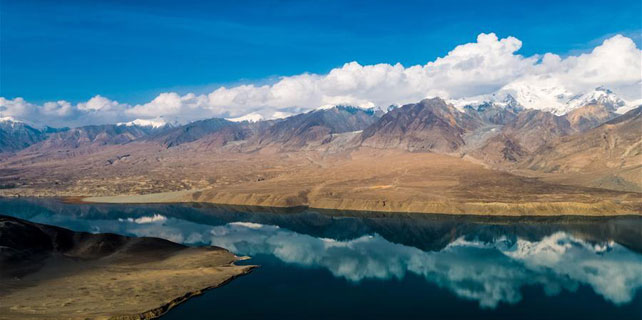China voices firm opposition to Indian leader's visit to disputed border area
BEIJING -- China said Monday it firmly opposes the Indian leader's visit to a disputed area on the China-India border, urging India to refrain from moves that complicate boundary issues, and work with China to create conditions for talks.
Foreign Ministry spokesperson Lu Kang made the comment when asked about Indian President Ram Nath Kovind's visit to the so-called "Arunachal Pradesh" on Sunday.
China's stance on the issue of the China-India border is consistent and clear, Lu said at a daily press briefing.
"The Chinese government has never recognized the so-called 'Arunachal Pradesh'," said Lu.
The two countries have been resolving border issues via negotiation so as to seek a fair and reasonable solution that can be accepted by both sides, he said.
"But before that, both sides should jointly safeguard the peace and stability on the border," Lu said.
Stressing that China-India ties are at an important stage for development, Lu said China hopes India can work with it to protect the overall relationship, refrain from moves that complicate boundary issues, and create favorable conditions for talks and the healthy development of bilateral ties.
The so-called "Arunachal Pradesh" was established largely on three areas of China's Tibet -- Monyul, Loyul and Lower Tsayul -- which are currently under India's illegal occupation. These three areas, located between the illegal "McMahon Line" and the traditional customary boundary between China and India, have always been Chinese territory.
In 1914, British colonialists secretly instigated the illegal "McMahon Line" in an attempt to incorporate into India the above-mentioned three areas of Chinese territory. None of the successive Chinese governments have ever recognized this line.
In February 1987, Indian authorities declared the founding of the so-called "Arunachal Pradesh."
China and India have held 19 rounds of talks on boundary issues with the latest round taking place in April 2016.
















